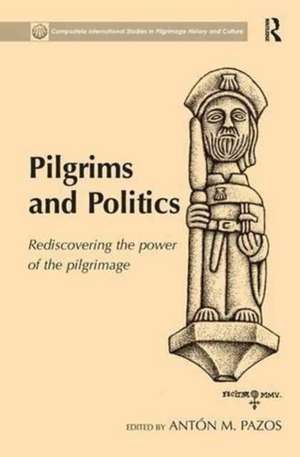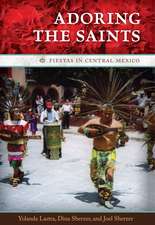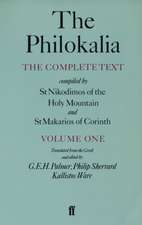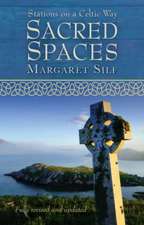Pilgrims and Politics: Rediscovering the Power of the Pilgrimage
Editat de Antón M. Pazosen Limba Engleză Paperback – 28 noi 2016
| Toate formatele și edițiile | Preț | Express |
|---|---|---|
| Paperback (1) | 489.26 lei 6-8 săpt. | |
| Taylor & Francis – 28 noi 2016 | 489.26 lei 6-8 săpt. | |
| Hardback (1) | 1058.65 lei 6-8 săpt. | |
| Taylor & Francis – 24 oct 2012 | 1058.65 lei 6-8 săpt. |
Preț: 489.26 lei
Nou
Puncte Express: 734
Preț estimativ în valută:
93.62€ • 97.99$ • 77.92£
93.62€ • 97.99$ • 77.92£
Carte tipărită la comandă
Livrare economică 01-15 aprilie
Preluare comenzi: 021 569.72.76
Specificații
ISBN-13: 9781138271821
ISBN-10: 1138271829
Pagini: 224
Dimensiuni: 156 x 234 mm
Greutate: 0.45 kg
Ediția:1
Editura: Taylor & Francis
Colecția Routledge
Locul publicării:Oxford, United Kingdom
ISBN-10: 1138271829
Pagini: 224
Dimensiuni: 156 x 234 mm
Greutate: 0.45 kg
Ediția:1
Editura: Taylor & Francis
Colecția Routledge
Locul publicării:Oxford, United Kingdom
Notă biografică
Antón M. Pazos is Vicedirector of the Instituto de Estudios Gallegos 'Padre Sarmiento' CSIC (Spanish National Research Council) and president of the Commission Internationale d'Histoire et d'Études du Christianisme (CIHEC).
Recenzii
’...this study will add to our understanding of the context in which material culture must be interpreted and for that reason it is of value to the archaeologist of religion.’ Medieval Archeaology
Cuprins
Introduction, Antón M.Pazos; Chapter 1 The Pilgrims’ Way of St James and Islam, Ana María CarballeiraDebasa; Chapter 2 Political Pilgrims and Political Saints in Medieval England, Robert N.Swanson; Chapter 3 The Ordeal of Bishop Adaulfo, Carlos BaliñasPérez; Chapter 4 Between Warfare and Conflict Resolution, YvonneFriedman; Chapter 5 The Role of the Order of St John in Pilgrimage and Politics, Paula Maria de Carvalho PintoCosta; Chapter 6 Pilgrimage with Added Benefits, BrendaBolton; Chapter 7 Lucca and Pilgrimage in the Later Middle Ages, ChristineMeek; Chapter 8 The Politics of Pilgrim Care, JoséAndrés-Gallego; Chapter 9 Old and New Pilgrimages in the Context of the Spanish Civil War, Antón M.Pazos; Chapter 10 Pilgrimages in Slovenia and their Political Significance, VincencRajšp; Chapter 11 Pilgrimages to Taizé from Estonia, RihoAltnurme; Chapter 12 New Forms of Pilgrimage, HughMcLeod;
Descriere
The objective of this book is the analysis of the relationships between the phenomenon of pilgrimage and political power within Europe. It establishes a discussion where contributors can compare very different situations such as the medieval pilgrims' protection by military orders, the pilgrimages in Eastern European countries as an opposition to the communist power, or the use of the Pilgrimage to Saint James as an element of national unification during the Spanish Civil War.






